OS
Latest
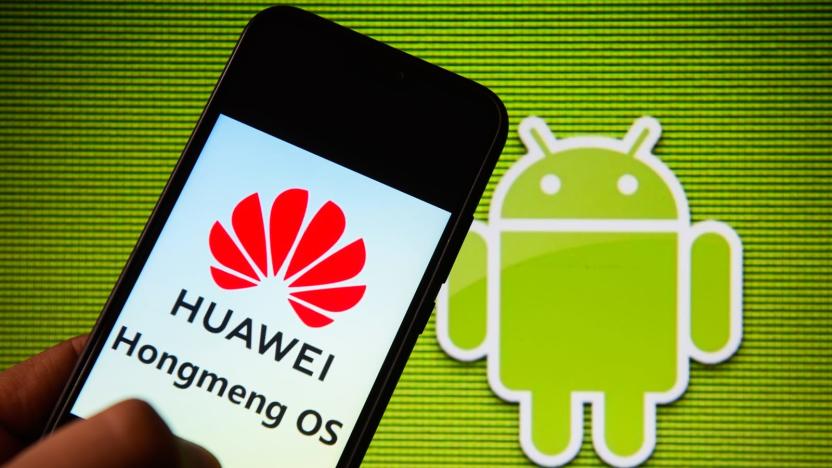
Huawei's supposed Android alternative isn't meant for smartphones
When Huawei trademarked its Hongmeng operating system last month, many assumed it was the long-rumored mobile OS that the company said it could use in place of Android or Windows. But that's not the case. Catherine Chen, a Huawei board member and senior vice president, told XinhuaNet that Hongmeng wasn't designed for smartphones. Instead, it's meant for industrial use, and Huawei plans to continue using Google's Android OS for its smartphones.
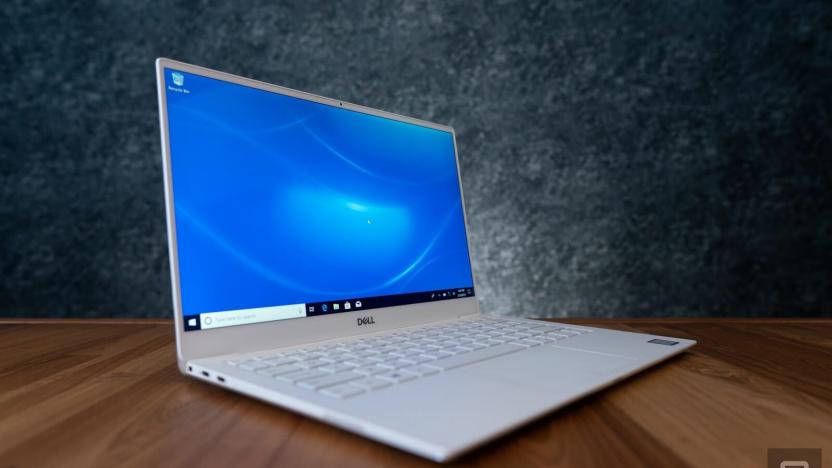
Microsoft's next big Windows 10 update is actually pretty small
We hope you liked the features added in the Windows 10 May 2019 update, because it may be a while before other noticeable upgrades happen. Microsoft committed to a biannual major release schedule for Windows 10 back in 2017, and now it confirmed that the "19H2" update set to roll out later this year "will be a scoped set of features for select performance improvements, enterprise features and quality enhancements." The good news, though, is that installing it will be handled more like the monthly patches Microsoft already delivers, so it shouldn't be disruptive to your schedule. It's also not a big surprise, since more noticeable feature changes -- like its new Linux kernel -- have been in testing since February with a build number indicating a release in spring 2020. Windows 10 Insider beta testers in the slow ring will get the first rollout of 19H2 starting now, but with no visible feature changes at all while Microsoft tests the update process. Assuming all goes well, it should be available for everyone in September. We'll see if this staggered feature release brings a future of "seamless OS updates" sooner rather than later.

Huawei trademarks its own mobile OS following US ban
Huawei is making moves to sidestep the Trump administration's de facto ban by trademarking its own operating system. The OS, which has reportedly been in the works for years, was named in trademark applications filed in Peru under the name "Hongmeng," for use within nine countries and Europe (although it's been filed under the name "Ark OS" on the continent). The company has previously suggested the system could roll out as early as this fall, but it only seems likely to do so if it is permanently denied access to Android. However, while launching its own OS is one way Huawei could continue operations in the face of its US ban, there are concerns about such a system's security, as software is not the company's strongest area.

Apple adds system-wide dark mode for iOS 13
As expected, Apple's newest mobile operating system, iOS 13, will include a system-wide dark mode. The company announced the change at its Worldwide Developers Conference (WWDC) today. While the feature has been circulating through the rumor mill for months, it's still one of the most notable changes to come out of this year's conference.

Microsoft teases a 'modern OS' with 'seamless updates'
Microsoft made a nod towards a possible new operating system at Computex in Taipei this week, when corporate vice president of consumer and device sales Nick Parker took to the stage to outline the company's future OS ambitions. While the event would have been a prime opportunity to reveal the much-rumored Windows Lite, no official announcements were made, but the company did discuss -- albeit cryptically -- what's in the pipeline.
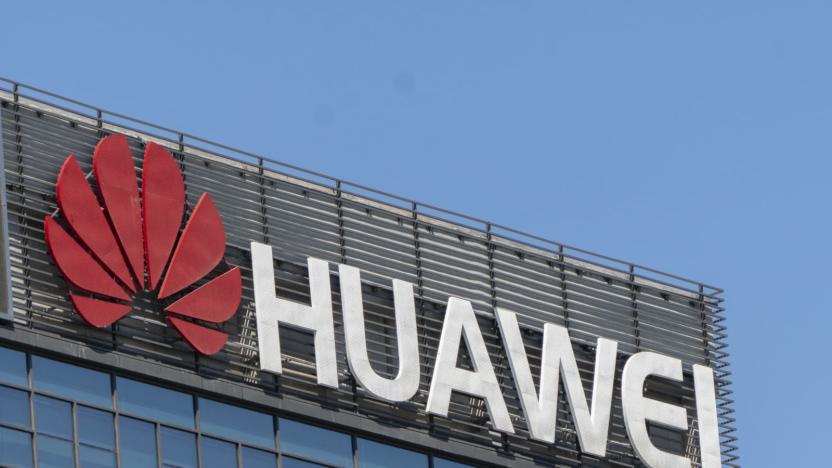
Huawei may debut its Android alternative as soon as this fall
Huawei's consumer business CEO Richard Yu reportedly said the company's own mobile OS will debut as early as this fall. Huawei hasn't confirmed plans to launch its OS, and Yu supposedly shared the information in a private WeChat group. But that timeline wouldn't be surprising given the recent US trade restrictions and Google's subsequent decision to suspend Huawei's Android support.

The new Android Q beta is a mostly cosmetic update
The Android Q beta 3 is here, and like the first public beta of this OS, there's not much to get excited about. This beta doesn't offer the meatiest update, but it is our first look at some of the user-facing features coming to Android Q. Things like Dark Mode and full gesture navigation are here, but more exciting highlights like Live Caption and Focus Mode are both missing. You can try the beta yourself if you're not afraid of potentially buggy software, and if you own one of the 21 handsets that will work with it. That's double the number of devices that supported the beta last year.
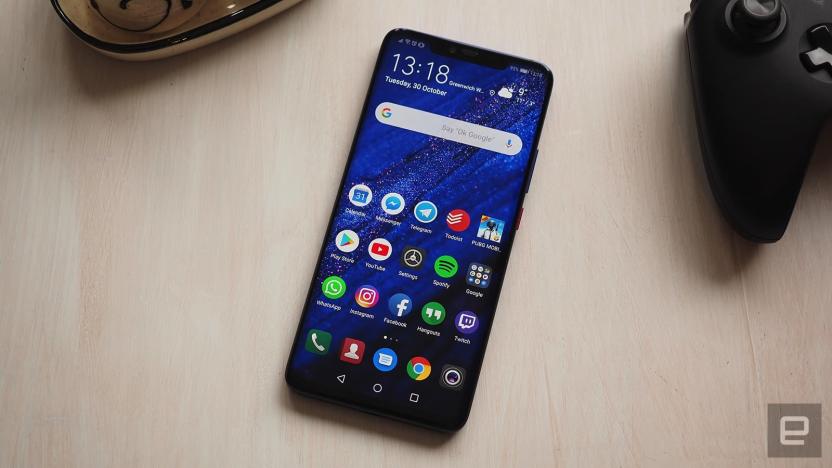
Huawei confirms it has a backup OS in case it's cut off from Android
In the event that tensions between Huawei Technologies and the US reach a boiling point, Huawei has a backup plan: its own operating system (OS) for phones, tablets and computers. The OS has been rumored for years, but Huawei confirmed its viability with the South China Morning Post, saying it could be used if the company were cut off from Android or Windows. It's seen as a last resort, but given the current discord between the US and Huawei, it's not entirely surprising that the company has a plan B.
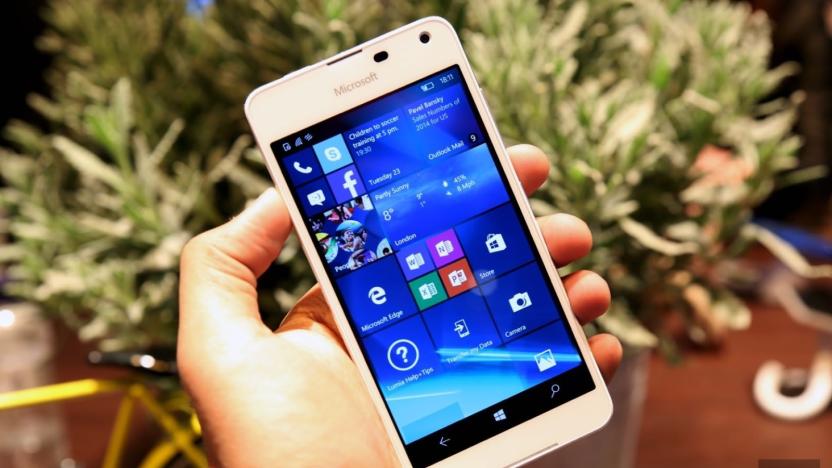
Microsoft ends support for Windows 10 Mobile this year
Microsoft is winding down support for Windows 10 Mobile. The company will stop releasing security and software updates on December 10th, and it will end technical support for the devices on that date.
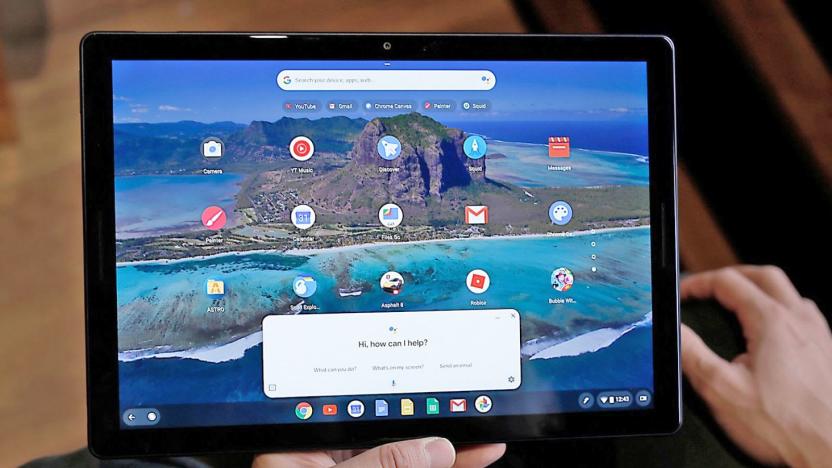
Chrome OS beta brings Google Assistant to more devices
To date, native access to Google Assistant on a Chrome OS device has meant splurging on Google-made hardware like the Pixelbook or Pixel Slate. You won't have to be quite so picky for much longer, though. Google has started testing Chrome OS 72 in beta form, and the new release brings Assistant to third-party Chromebooks for the first time. It works in the same way as you'd expect on the Slate, with support for both voice and written commands through a pop-up at the bottom.
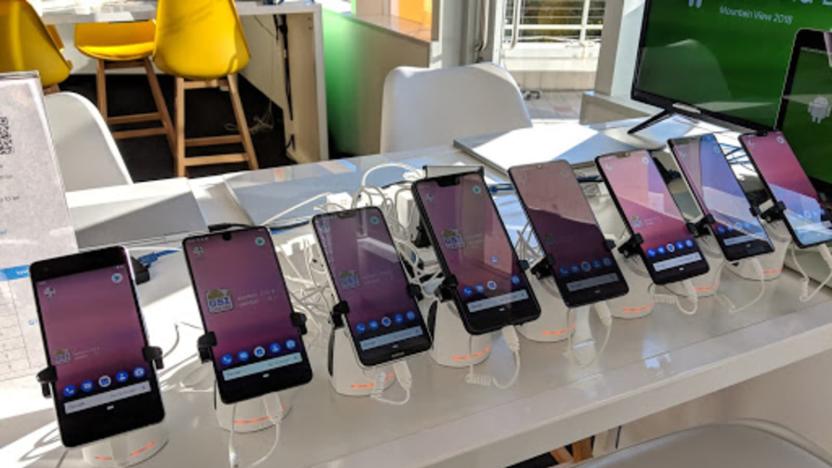
Google: Android Pie will hit more devices in 2018 than Oreo did in 2017
Google has long been criticised for the long delays between Android upgrades. While iPhone users are merrily chowing down on regular OS updates, Android users have to wait for long intervals, with lower cost handsets never seeing an update at all during their lifespans. Google's update framework, Project Treble, seeks to rectify this, and the company has just announced that all devices launching with Android 9 Pie or later will be Treble-compliant. The picture above shows off a range of Trebled-equipped devices displaying the same Generic System Image.
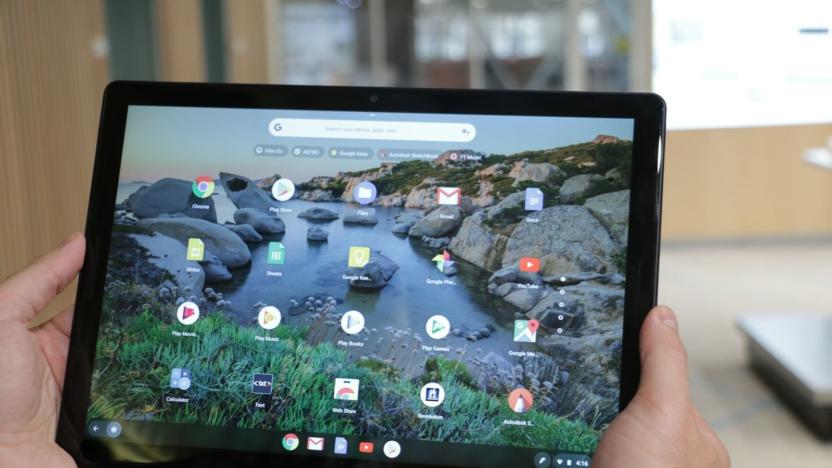
Latest Chrome OS update includes a redesigned tablet interface
You won't need a Pixel Slate to use a more touch-oriented version of Chrome OS. Google has released an update (version 70) that brings the Slate's interface changes to all touchscreen Chrome OS PCs and tablets. There's a more finger-friendly app shelf with contextual menus, an overhauled control panel with faster access to common features (plus a unified notifications feed) and a launcher that shows recent sites. you'll also find a Gboard-based on-screen keyboard with an option to float a small keyboard if you'd rather type with one thumb.

LG opens 'Software Upgrade Center' to accelerate Android updates
Despite repeated promises of change by Google and its various hardware partners, slow and spotty rollouts are still the rule rather than the exception when it comes to new versions of the Android operating system. LG's latest plan to turn that around is a new facility at its R&D campus in South Korea called the Software Upgrade Center, which it said is dedicated to "providing customers worldwide with faster, timelier, smartphone operating system and software updates." Its first task is to handle a rollout of Android Oreo for the current flagship G6 phone (current until the G7 launches in May) that will start in Korea later this month. LG Electronics CEO Mr. Jo Seong-jin said in a statement that "Stable and consistent upgrades will demonstrate to our customers that LG smartphones have long and reliable lifespans." Beyond initiatives like Project Treble, if LG can consistently keep its devices supported faster and through more iterations of the operating system, that might help raise its profile compared to the competition. But it has to deliver the goods first -- and hopefully before Android P emerges from beta testing.
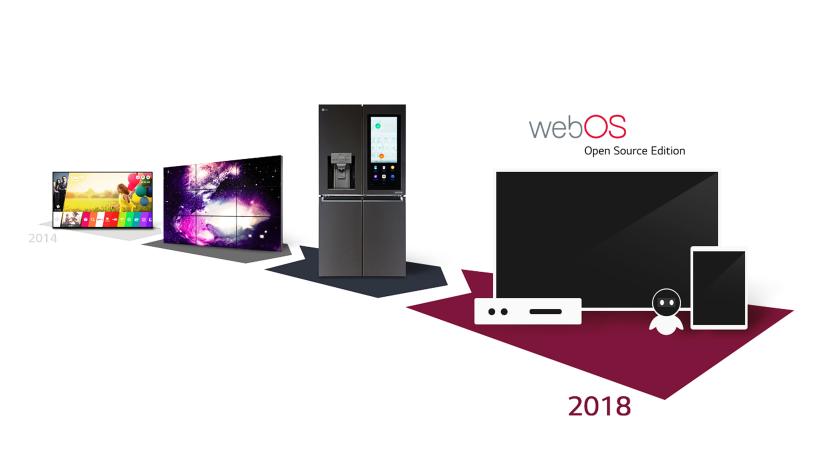
LG wants to take webOS beyond TVs with 'Open Source Edition'
WebOS used to power HP's long-dead Palm devices and early tablets, but since LG got a hold of it in 2013, it's mostly been associated with smart TVs and refrigerators. LG is hoping to push the the platform beyond that, however, with a new release called webOS Open Source Edition. As the illustration above shows, it's hoping developers will adopt it for devices like tablets, set-top boxes and (I think) robots.
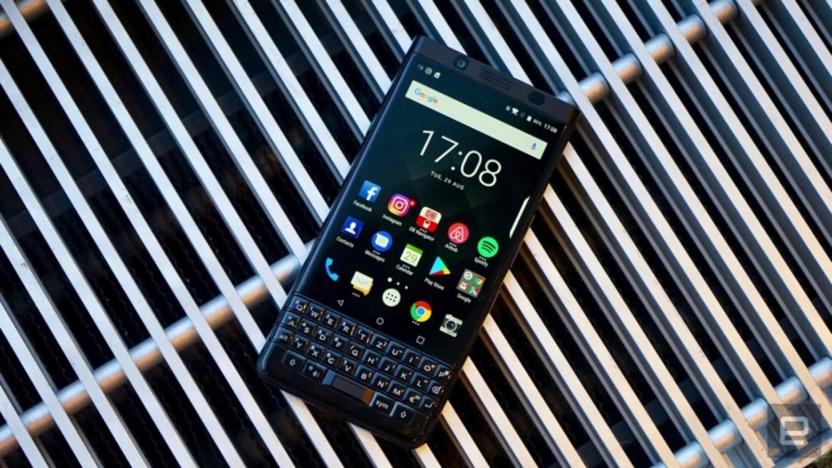
BlackBerry calls 2017 a success amid reports of soft sales
TCL unveiled the Blackberry KEYOne at MWC 2017 and now, a year later, we have an idea of how well it sold as well as a glimpse into the company's outlook going forward. IDC's Francisco Jeronimo says that just 850,000 BlackBerry devices shipped last year, a very low number that's well behind those of companies like Apple and Samsung. But according to The Verge, who spoke to two members of the BlackBerry Mobile team, the company considers last year's sales a success.
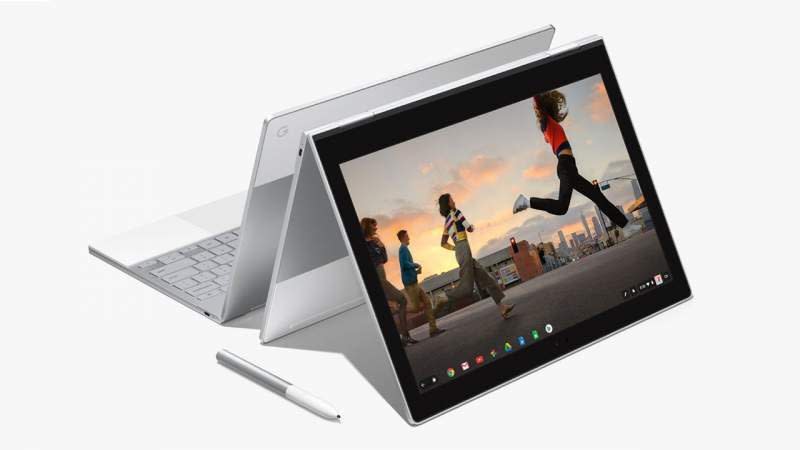
Google brings its mysterious Fuchsia OS to the Pixelbook
Google's Fuchsia operating system -- transparent in development yet mysterious in purpose -- now works on a third device: Google's $1,000 Pixelbook. The OS, which has been likened to an Android re-do but appears to be built from scratch, also works on the Acer Switch Alpha 12 laptop and old Intel NUCs from 2015.
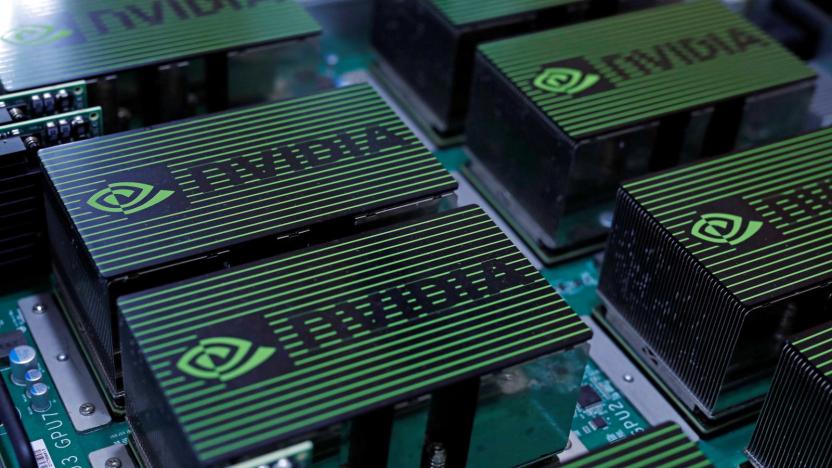
NVIDIA is gearing up to end 32-bit OS support
The time of the 32-bit OS continues its slow descent into obsolescence. NVIDIA announced that Version 390 of its graphics card driver would be the last to support 32-bit Windows, Linux and FreeBSD systems.
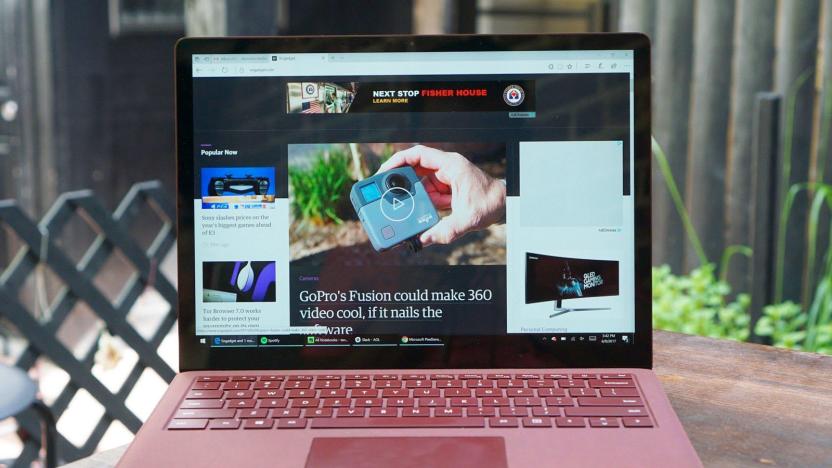
Windows 10 will give you more control over app permissions
Microsoft is aware that there are still concerns about Windows 10's privacy, and it's trying to put some of them to bed with the Fall Creators Update. As part of a post detailing the imminent update's privacy improvements, the software giant has revealed that you'll get much more control over what apps are allowed to do with your device. Where you previously only had control over location sharing, the Fall Creators Update will ask you to grant permission before accessing all kinds of potentially sensitive hardware and software features. It'll ask to use your camera and microphone if you have a video recording app, for instance, or check before offering access to your calendar and contacts.
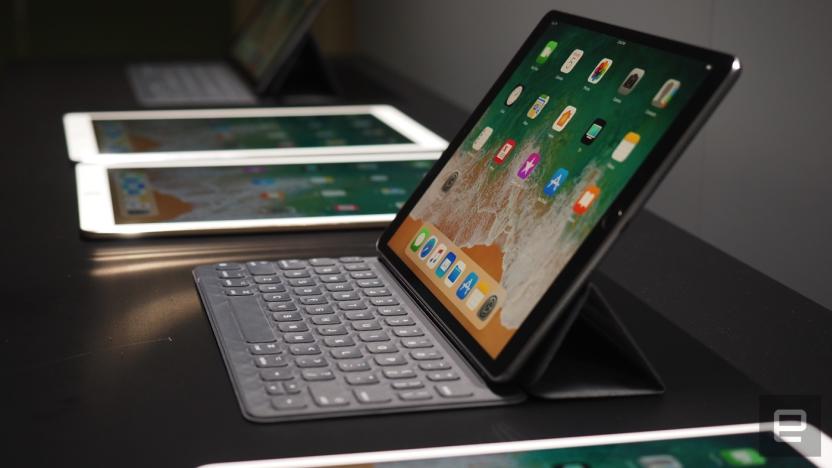
Apple demonstrates how the iPad Pro was made for iOS 11
Apple's iPad sales were surprisingly good last quarter, but a lot of critics (including us) thought there was still no way the iPad Pro could replace a proper PC. The release of iOS 11 next month will change some minds, however. A new series of Apple videos shows how to use the new features, including the Dock, Files app, multitasking, Apple Pencil and more. Suffice to say, it drastically improves productivity on the tablets, making it much easier to do multiple jobs concurrently.

Ubuntu Linux is available in the Windows Store
Here's a statement that would have been unimaginable in previous years: Ubuntu has arrived in the Windows Store. As promised back in May, you can now download a flavor of the popular Linux distribution to run inside Windows 10. It won't compare to a conventional Ubuntu installation, as it's sandboxed (it has limited interaction with Windows) and is focused on running command line utilities like bash or SSH. However, it also makes running a form of Linux relatively trivial. You don't have to dual boot, install a virtual machine or otherwise jump through any hoops beyond a download and ticking a checkbox.








